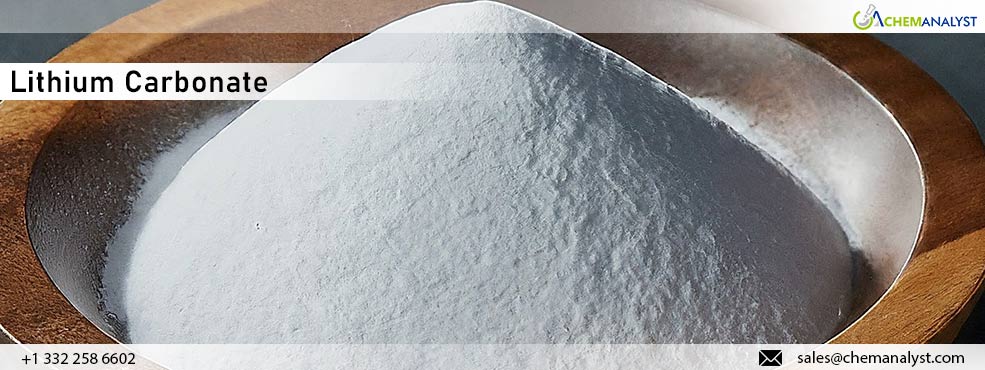Welcome To ChemAnalyst

Hamburg, Germany: Throughout February 2024, Lithium Carbonate prices in Germany have continued their declining trend, which has persisted over the past year due to weak support from upstream spodumene ore and other raw materials, affecting production costs. This is compounded by weak demand from downstream lithium-ion batteries and Energy Storage Systems (ESS) manufacturers.
During the latter part of February, Lithium Carbonate prices experienced further declines in the German domestic market, attributed to the influx of cheaper imports from Chile and other nations. Sources indicate that spot prices for Lithium Carbonate in Europe and the United States have remained largely fragile amidst prevailing bearish market conditions across the globe. Market participants have observed sluggish activity in the spot market and are awaiting clarity regarding a potential reversal in the bearish trend of Lithium Carbonate following the conclusion of Lunar New Year celebrations in China, the industry leader. It has been observed that the traditional premium of lithium hydroxide prices over Lithium Carbonate prices has recently diminished in both European and US markets, reflecting similar trends observed in Asian spot markets.
Market participants point to the more pronounced weakness observed in downstream lithium hydroxide compared to Lithium Carbonate in China's domestic market as the driving force behind this shift in the US and Europe. Additionally, Albemarle, the world's largest Lithium Carbonate producer, reported an adjusted quarterly profit that surpassed expectations. This was attributed to significant cost reductions, which offset the sharp decline in prices for Lithium Carbonate. The slowdown in the global adoption of electric vehicles, combined with excess Lithium Carbonate production in China, has led to a decrease in lithium prices, impacting the financial performance of Albemarle and other industry players.
This year, the vital lake essential for the Panama Canal's operation has reached its lowest recorded water level ever at the onset of the dry season. Consequently, fewer ships traversed through the canal. The severe drought, exacerbated by the ongoing El Nino phenomenon affecting Gatun Lake and its surroundings, is anticipated to persist until May 2024. In efforts to mitigate the repercussions, the Panama Canal Authority has reduced daily traffic through the narrow passage by nearly 40% compared to the previous year. Many vessels have already opted for longer sea routes, leading to heightened expenses. Additionally, Maersk, a global shipping company, has unveiled plans to shift some of its cargo to rail transport, resulting in delays in shipments of Lithium Carbonate.
According to the ChemAnalyst database, Lithium Carbonate prices are expected to stabilize in the coming weeks, supported by heightened demand and improved overall market sentiments.
We use cookies to deliver the best possible experience on our website. To learn more, visit our Privacy Policy. By continuing to use this site or by closing this box, you consent to our use of cookies. More info.
